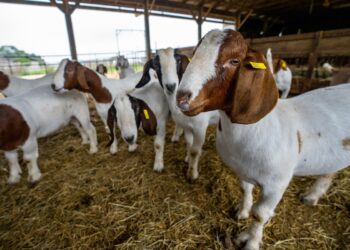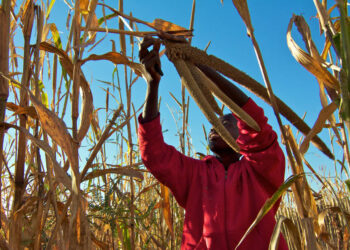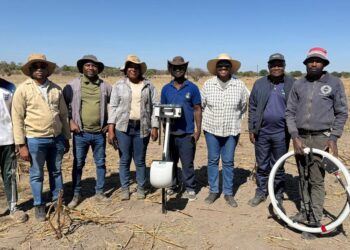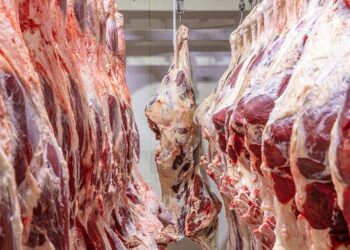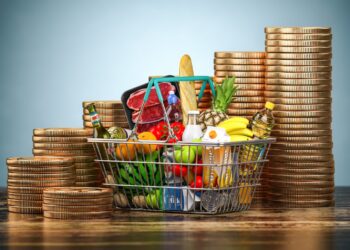
By Erastus Ngaruka
The life of communities in rural areas is characterized by their native interaction with their environment or the ecosystem. This interaction carries an important economic value as the ecosystem resources offer them the opportunity to sustain their livelihoods.
These resources include the flora and fauna, which serve as food sources. For example, rural communities derive medicines, food, and construction materials from their ecosystem and use it as a habitat for their livestock.
Rural economic activities include selling and bartering products. For example, one may sell a goat to a neighbor for money or exchange it for valuable commodities, food items, or a service rendered.
However, urban settlers, businesses, and tourists also offer trading opportunities to rural communities by buying livestock, wild foods, crops, craft products, etc. These rural economic activities are mainly driven by immediate household needs related to food, health, education, and cultural events such as weddings and funerals, amongst others. Overall, these interactive economic activities have been sustaining rural livelihoods, making households self- reliant and resilient.
Lately, it has been observed that rural livelihoods are becoming difficult to sustain due to the reduction in economic activities, affected by land degradation, drought, high production costs, lack of production inputs, disease and pest outbreaks, and other socioeconomic issues.
As a result, there is an increase in rural-urban migration. Numerous people flock to the cities or urban areas hoping to find economic opportunities because of increasing developmental activities in such areas. This is because urban areas offer better opportunities in terms of education, health, employment, and general access to many goods and services.
The majority of people leaving rural areas are the youth, both skilled and unskilled, seeking either education/training, employment, and business opportunities. This is a significant loss of powerful and youthful human capital from rural areas. Moreover, if such youth fail to secure opportunities, their skills, abilities, and hopes diffuses into unproductive activities (e.g. crime, alcohol, drugs).
Moreover, part of the rural-urban migrants includes farmers who no longer favor full-time farming but part-time, and those that are demotivated or abandon farming activities as they cannot withstand challenges related to the cost of production, recurrent drought, and loss of production and income.
This is a significant threat to potential agricultural production, household food self- sufficiency, and the national economy, as the country would have to rely on food imports to feed the nation.
Other categories of people migrating from rural areas are the elderly seeking better medical care and improved living conditions. The impact thereof is that continuity and transfer of knowledge to the younger generation could be disrupted. This is observed in some young people who feel unmotivated in farming, while some perceive agriculture as an activity for the elderly.
In Namibia, the phenomenon is particularly conspicuous, as evidenced by the influx of people from rural to urban areas in recent years in search of better opportunities. Furthermore, some people also travel beyond Namibian borders and immigrate to developed countries across the globe in search of better economic opportunities to enhance their livelihoods.
Although urban areas are perceived to provide better livelihood opportunities because of the myriad of larger-scale developmental and economic activities, they are still characterized by an increasing cost of living as communities find it difficult to afford food, water, electricity, housing, health, and transport, amongst others. Moreover, the current economic conditions, global tensions, and harsh climatic conditions, amongst other factors, have exacerbated society’s vulnerability to poverty.
Rural-urban migration has a negative impact on agricultural production as it results in a decrease in the rural population, thus, critical agricultural skills and the labor force is moved out of production areas. Ultimately, this reduces potential and sustainable agricultural productivity, especially at the household level.
In general, rural-urban migration leads to disparities in terms of developmental resource allocation because of skewed population distribution and needs. Thus, more resources for development would be allocated to densely populated urban areas, leaving minimal resources for rural areas. In the process, rural areas are losing potential investment opportunities and wealth.
Ultimately, agriculture is an economic pillar in Namibia, supporting all livelihoods in the form of food, employment and income, and it constitutes the main economic activity in rural areas, either for subsistence or on a commercial basis. A reduction in agricultural productivity negatively affects food systems, threatening food self-sufficiency and food security in the country. Moreover, local food demand increases, and affordability becomes impossible for the vulnerable.
This, in turn, exerts tremendous pressure on the provision of food and other services such as land, water, and sanitation in urban areas. At large, the reduction in agricultural productivity in the country results in increased spending on importation by the country to meet the local food demand of the growing population.
Moreover, government feeding initiatives such as school feeding programs and the food bank may not be sustainable if local food production is not fully supported to fill the gap. Thus, to ensure food self-sufficiency and food security in Namibia, local food production is key.
This can be achieved through programs aimed at promoting and assisting local food production in rural areas by providing appropriate support to individual and community projects in the form of skills, finance, materials, land, water, value addition, and market access. This requires coordinated efforts amongst the relevant institutions, for example, the Ministry of Agriculture, Agribank, Institutions of Higher Learning, development partners, non-profit organisations, and the private sector, amongst others.
For example, these communities can be supported with research trials, training, land restoration, infrastructure setup, accessing finance and inputs, and access to markets etc.
To ensure the sustainability of these projects, the government can source local products to supply food to local schools, hospitals and prisons, amongst others. In addition, local institutions supplying water and electricity (e.g., Namwater, Nampower) have a critical role to play in local food production and in aiding in the reduction of the cost of production in rural areas. Moreover, projects related to rainwater harvesting and channeling, irrigation projects, and cold storage warehouses can be developed and supported.
All stakeholders, including local authorities in urban areas, have critical roles to play in reducing rural-urban migration through coordinated efforts aimed at promoting agricultural projects in rural areas to ensure sustainability and reduce pressure on the demand for services in urban areas.
Further, the Ministry of Education and the Ministry of Health have critical roles to play in food self- sufficiency and security through the promotion and implementation of agricultural education projects, school and community gardens, feeding programs, and community health and nutrition initiatives both in rural and urban areas. These can be part of the school curriculum where agriculture as a subject is made compulsory from primary to secondary school levels.
Lastly, the rural development agenda needs to stimulate sustainable food production, establish efficient road networks and market linkages, and retain the skills and labor force in rural areas. In a nutshell, rural communities need basic development or improvement to support their economic activities and uplift their social well-being.
* Erastus Ngaruka is Technical Advisor: Livestock s Rangeland Management at Agribank


